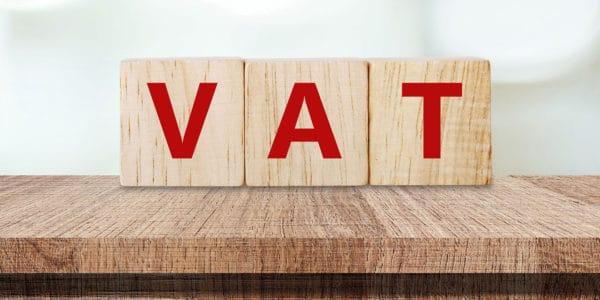Every business is required to pay tax on its profits. However, the types of business taxes you have to pay depend on several factors, including your chosen business structure (e.g. sole trader, limited company), whether or not you employ people to work for you, and the type of premises you operate from.
We provide an overview of 7 types of business taxes below, which should give you a general understanding of what you may have to pay when you set up a new business.
Key takeaways
- Understand your business structure to determine applicable taxes and obligations for your enterprise.
- Register for VAT if your taxable turnover exceeds £90,000 to avoid penalties and benefit from reclaiming VAT.
- Seek professional advice to navigate complex tax regulations and ensure compliance with HMRC requirements.
1. Corporation Tax
Corporation Tax is the principal type of business tax that companies pay on their trading profits, income received from investments, and any gains they make from selling their assets.
This type of tax applies to all companies, regardless of whether they operate as commercial enterprises, charities, or not-for-profit organisations.
There are two rates of Corporation Tax in the UK:
- 19% small profits rate – companies with profits of £50,000 or less
- 25% main rate – companies with profits greater than £250,000
If a company has profits between £50,000 and £250,000, it may be able to claim Marginal Relief. This provides a gradual increase between the two rates.
If you set up a company, you will need to register for Corporation Tax within three months of starting to do business. You must also send an annual Company Tax Return and pay any Corporation Tax you owe to HMRC by certain deadlines each year.
Who pays Corporation Tax?
Only companies and unincorporated associations are required to pay Corporation Tax on their profits. This includes private companies limited by shares or guarantee, public limited companies (PLCs), unlimited companies, co-operatives, sports clubs, and community groups.
No other type of business pays this tax, so it will not apply to you if you operate as a sole trader, limited liability partnership (LLP), limited partnership (LP), or general partnership.
2. Value Added Tax (VAT)
Value Added Tax (VAT) is an indirect tax that is added to the price of most goods and services sold by VAT-registered businesses.
You will need to register for VAT if your business has a VAT-taxable turnover of more than £90,000 in a 12-month period. If your turnover is less than this, you have the option of voluntary VAT registration, which offers a number of benefits to small businesses.
There are three different VAT rates. Most products and services are subject to the standard rate of 20%, apart from those which are classed as reduced or zero-rated.
If you register for VAT, the rate you will need to apply will depend on the types of goods or services you supply, and how they are used.
Who pays VAT?
VAT applies to every type of business structure, including companies, partnerships, and sole traders. However, you only need to charge VAT on the goods or services you sell if:
- you are legally required to register for VAT (e.g. because your turnover is greater than £90,000 in a 12-month period), or
- you choose to register voluntarily
Regardless of whether or not you register for VAT, you will still have to pay VAT on certain purchases you make for your business. But the good news is that you can claim back the VAT you pay if you’re a VAT-registered business.
3. Income Tax
Income Tax is payable on personal earnings, including salaries and wages, profit from self-employment, rental income, state benefits, most pensions, and interest on savings.
The way in which Income Tax is paid to HMRC depends on a person’s employment status. Different rates also apply, based on how much a person earns in a tax year and where in the UK they reside.
If you set up a limited company, you will be liable to pay Income Tax on your director’s salary, as well as any wages you pay to employees. You will need to register as an employer and deduct Income Tax each payday through HMRC’s Pay As You Earn (PAYE) system. You will operate PAYE as part of your company’s payroll.
- Company director tax guide 2025/26: PAYE, dividends, and more
- Self Assessment guidance for company directors and shareholders
- Registering as an employer – the essentials
If you operate as a sole trader or a business partnership, you will pay Income Tax on all profits you personally receive from the business. You will be required to calculate and pay your Income Tax liability through Self Assessment after the end of each tax year.
The current rates of Income Tax for taxpayers in England, Wales, and Northern Ireland are as follows:
- 0% Personal Allowance – the first £12,570* of income in a year
- 20% Basic rate – earnings from £12,571* to £50,270
- 40% Higher rate – earnings from £50,271 to £125,140
- 45% Additional rate – earnings from £125,141
The current rates of Scottish Income Tax for taxpayers in Scotland are as follows:
- 0% Personal Allowance – the first £12,570* of income in a year
- 19% Starter rate – earnings from £12,571* to £15,397
- 20% Basic rate – earnings from £15,398 to £27,491
- 21% Intermediate rate – earnings from £27,492 to £43,662
- 42% Higher rate – earnings from £43,663 to £75,000
- 45% Advanced rate – earnings from £75,001 to £125,140
- 48% Top rate Basic rate – earnings from £125,141
*Assuming the individual is entitled to the standard tax-free Personal Allowance of £12,570 for the year.
All of the above rates and thresholds apply to the 2025/26 tax year.
Who pays Income Tax?
Every individual is liable to pay Income Tax on their personal earnings, including sole traders, company directors, office holders, partners in a business partnership, and employees and workers.
4. National Insurance contributions (NICs)
National Insurance contributions (NICs) are payable on salaries, wages, and self-employed profits. You need to pay NIC to qualify for certain benefits and the State Pension.
Most people pay 8% employee (primary) Class 1 NICs through PAYE at the same time as their Income Tax. Self-employed people are liable to pay 6% Class 4 NICs on their profits. The requirement to pay NICs kicks in when wages or self-employed profits exceed £12,570.
Employers are also required to pay 15% employer (secondary) Class 1 National Insurance contributions on employees’ and workers’ wages above the NIC secondary threshold of £96 per week (£417 per month, £5,000 per year). If you form a company, you may have to pay employer NICs on your director’s salary and the wages of anyone you hire to work for your business.
Who pays National Insurance contributions?
The requirement to pay National Insurance contributions applies to all employees and workers aged 16 or over, employers, and self-employed people.
5. Dividend tax
Dividend tax, as the name suggests, is a tax on dividend payments. Shareholders pay dividend tax on the income they receive from company shares.
There are three rates of dividend tax:
- Basic rate – 8.75%
- Higher rate – 33.75%
- Additional rate – 39.35%
These rates are linked to Income Tax bands. Therefore, if you own shares, your total annual earnings from all sources will determine how much tax you pay on your dividend income.
If you are a higher-rate or additional-rate taxpayer, you may have to pay more than one dividend tax rate.
You won’t pay tax on dividend income that falls within your Personal Allowance. Additionally, you are entitled to an annual tax-free dividend allowance, which is £500.
Who pays dividend tax?
Only individual shareholders pay dividend tax on the income they receive from shares. Corporate shareholders (e.g. limited companies that own shares in other companies) are taxed differently. They are liable to pay Corporation Tax on any dividend income they receive from their investments.
6. Capital Gains Tax (CGT)
Capital Gains Tax (CGT) is payable on the profit (gains) that an individual person or certain type of business makes when disposing of (e.g. selling, giving away) an asset that has increased in value. It is the gain that is taxed, not the total amount received from the disposal of the asset.
The rates of Capital Gains Tax payable by basic-rate taxpayers are:
- 18% on gains from residential property
- 32% on gains from ‘carried interest’ (if you manage an investment fund)
- 18% on gains from other chargeable assets
Higher-rate and additional-rate taxpayers are liable to pay:
- 24% on gains from residential property
- 32% on gains from carried interest
- 24% on gains from other chargeable assets
There is an annual Capital Gains tax-free allowance of £3,000. Additional tax relief, known as Private Residence Relief, also applies to gains from residential property that satisfy certain conditions.
Who pays Capital Gains Tax?
Capital Gains Tax applies to individual people, sole traders, and business partnerships. Other types of businesses, such as limited companies, pay Corporation Tax on any profit they make from disposing of their assets.
7. Business rates
Most non-domestic (commercial) properties are subject to business rates. If you use a building or part of a property for non-domestic purposes, including part of your own home, you will most likely have to pay business rates.
Rates are usually based on the ‘rateable value’ of the property, but you may be entitled to business rates relief to reduce your bill. Your local council will provide you with a bill each year.
The way in which business rates are handled depends on whether the property is situated in England or Wales, Scotland, or Northern Ireland.
If you are not sure whether you should be paying business rates, you should contact the Valuation Office Agency (England and Wales), your local assessor (Scotland), or Land & Property Services (Northern Ireland).
Who pays business rates?
Every type of business may be liable to pay business rates, even sole traders and company directors who work exclusively from their own private residences.
However, most home-based business owners do not have to pay rates if they only use a small part of their home for business purposes (e.g. using a spare bedroom as an office).
Thanks for reading
There are many different types of business taxes to be aware of, so it’s wise to get to grips with them before you decide which type of structure to use for your new enterprise.
Whether you choose to operate as a sole trader, or set up a company or partnership, we always recommend appointing an accountant, who can advise and assist with all tax, bookkeeping, and accounting matters.
Should you have any questions or require help to form a company or limited liability partnership, please leave a comment below or contact our company formation team.














Join The Discussion
Comments (2)
Thanks for the article! Learning these types of business taxes will help in efficient management of my own financial services UK business.
Thank you for your comment, David. We’re happy you could use this information to manage your financial services UK business.
Kind regards,
The QCF Team